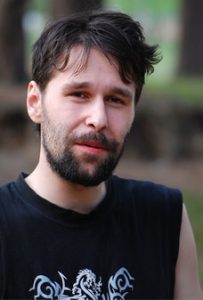For the first time ever, education experts and the public can track, in real time, the increasing number of children who are unable to read and understand a simple sentence by age 10. The Lost Potential Tracker also makes accessible the stories of children affected by the global learning crisis, and allows users to step into the shoes of a policymaker and experience first-hand how effective financing can help turn the tide for children.
Based on calculations from official World Bank and UNESCO ‘learning poverty’ figures, and UN population data of all 10-year-olds, the Tracker sets out the number of children losing their future potential every year, month, week, day, hour, and second. Findings from the Tracker show that nearly 6 million children turn 10 each month without acquiring the basic literacy skills for their age. That is equivalent to the population of Johannesburg.
Without a commitment to effectively fund education for all, the organisations behind the Lost Potential Tracker warn that the world will not only fail to deliver on its education promises by 2030, but will also risk losing out on the next generation of doctors, teachers and leaders.
The age of 10 is a pivotal milestone in a child’s life, where they transition from learning to read to reading to learn. It is a make-or-break moment that allows a child to go from simply learning to read words on a page to understanding complex subjects and content.
– Even before COVID-19, World Bank and UNESCO estimates indicated that 90% of 10-year-olds in low-income countries could not read and understand a simple story.
– For the first time ever, education experts and the public can track, in real time, the increasing number of children who are unable to read and understand a simple sentence by age 10. Key highlights from the tracker include:
– Every month, nearly 6 million children lack the basic literacy skills expected of a ten year old; this is equivalent to the population of Johannesburg.
– Every week, over 1.3 million children are affected; this is equivalent to half of the secondary school students enrolled in Canada.
– Every day, over 193,000 children are affected; this is equivalent to nearly filling the seating capacity of Camp Nou Stadium twice, the largest football stadium in Europe.
– Every hour, 8,050 children are affected; this is equivalent to filling 29 UK primary schools.
– By the end of 2021, 70 million children could be affected.
A right to education has been recognized by some governments, including at the global level: Article 13 of the United Nations’ 1966 International Covenant on Economic, Social and Cultural Rights recognizes a universal right to education. In most regions education is compulsory up to a certain age.
 Plato founded the Academy in Athens, the first institution of higher learning in Europe. The city of Alexandria in Egypt, established in 330 BCE, became the successor to Athens as the intellectual cradle of Ancient Greece. There, the great Library of Alexandria was built in the 3rd century BCE. European civilizations suffered a collapse of literacy and organization following the fall of Rome in AD 476.
Plato founded the Academy in Athens, the first institution of higher learning in Europe. The city of Alexandria in Egypt, established in 330 BCE, became the successor to Athens as the intellectual cradle of Ancient Greece. There, the great Library of Alexandria was built in the 3rd century BCE. European civilizations suffered a collapse of literacy and organization following the fall of Rome in AD 476.
In China, Confucius (551-479 BCE), of the State of Lu, was the country’s most influential ancient philosopher, whose educational outlook continues to influence the societies of China and neighbors like Korea, Japan and Vietnam. Confucius gathered disciples and searched in vain for a ruler who would adopt his ideals for good governance, but his Analects were written down by followers and have continued to influence education in East Asia into the modern era.
After the Fall of Rome, the Catholic Church became the sole preserver of literate scholarship in Western Europe. The church established cathedral schools in the Early Middle Ages as centers of advanced education. Some of these establishments ultimately evolved into medieval universities and forebears of many of Europe’s modern universities. During the High Middle Ages, Chartres Cathedral operated the famous and influential Chartres Cathedral School.
The medieval universities of Western Christendom were well-integrated across all of Western Europe, encouraged freedom of inquiry, and produced a great variety of fine scholars and natural philosophers, including Thomas Aquinas of the University of Naples, Robert Grosseteste of the University of Oxford, an early expositor of a systematic method of scientific experimentation, and Saint Albert the Great, a pioneer of biological field research. Founded in 1088, the University of Bologne is considered the first, and the oldest continually operating university.

